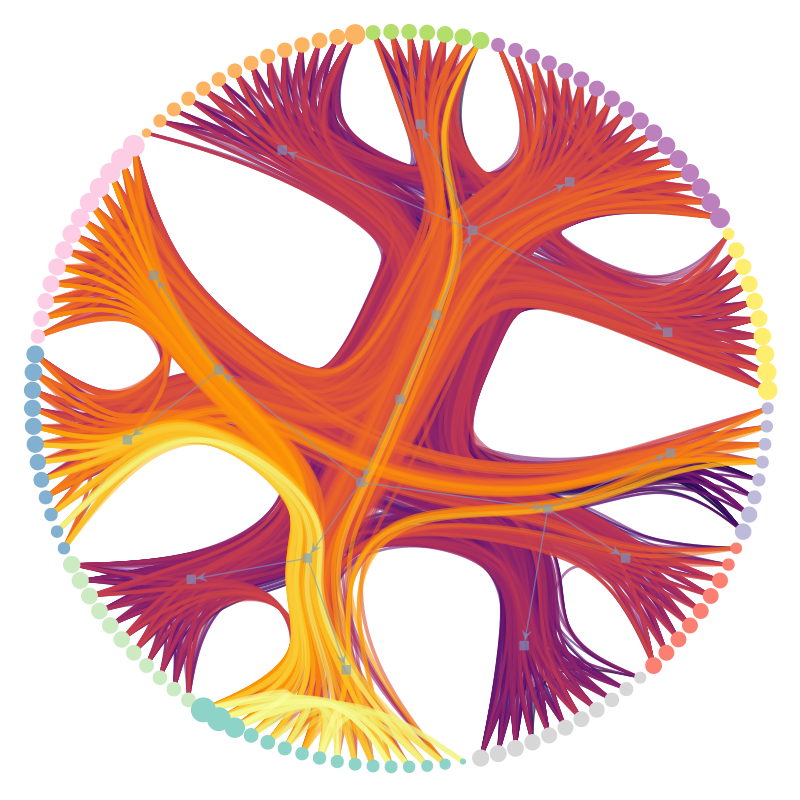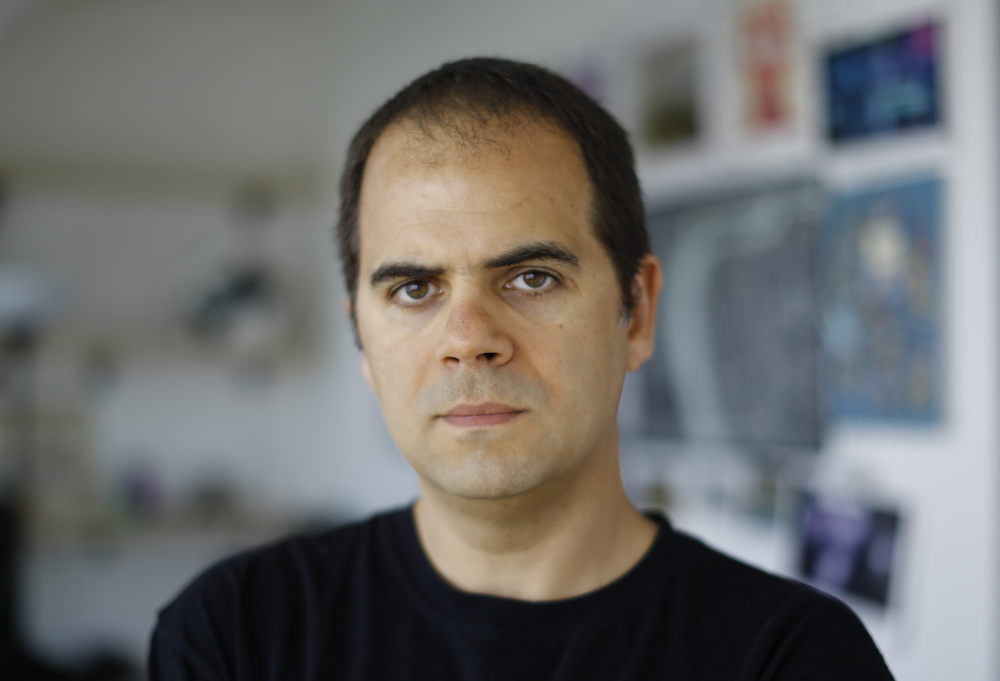Inverse Complexity Lab
Organisms, ecosystems, climates, information systems, and societies are examples of complex systems: they exhibit rich behavior emerging from a large number of individual components following relatively simple local rules, based on a network of direct interactions.
Complexity science is traditionally devoted to solving the forward problem: Given postulated local rules of interaction, what is the large-scale organization that emerges from them?
Our research group focuses on the inverse problem: Given an empirically observed large-scale organization, what are the local rules of interaction that caused it?
With this aim, our group develops mathematical and computational models to explain the structure and function of complex network systems, and the algorithms to reconstruct the structure of these models from available empirical data.
We are particularly interested in problems related to:
- Statistically principled pattern identification in complex networks.
- Inverse problems and reconstruction of large-scale systems from indirect data.
- Uncertainty quantification for complex systems.
- Generative models that characterize modular hierarchies, ranks, and latent spaces.
- Temporality, higher-order organization, and multivariate annotation of relational data.
- Scalable network algorithms.
- Scientific software development and dataset curation.
In our work, we employ theory and methods from several disciplines, including statistical physics, computational statistics, information theory, Bayesian inference, and machine learning.
For more information see our research and publications pages.
Most of the methods developed in our group are made available as part of the graph-tool library, which is extensively documented.
For a practical introduction to many inference and reconstruction algorithms, please refer to the HOWTO.
Open positions
Interested PhD candidates are encouraged to apply for the “PhD Program in Computational X at IT:U”.
Prospective post-doc researchers should refer to the joining the group page.
Group news
- 23/02/2026 — New blog post: “Higher orders need higher standards”
- 20/02/2026 — New pre-print: “Graphs are maximally expressive for higher-order interactions” [1]
- 12/12/2025 — New pre-print: “Meso-scale structures in signed networks” [2]
- 04/12/2025 — New blog post: “The perplexing “connected cluster axiom”
- 05/11/2025 — New paper “Uncertainty quantification and posterior sampling for network reconstruction.” [3]
- 29/10/2025 — New paper “Scalable network reconstruction in subquadratic time.” [4]
- 29/08/2025 — Keynote talk at the HKU IDS Interdisciplnary Worskop “Understanding Complex Networks”.
- 01/08/2025 — The second Complexity Lab retreat @ Traunkirchen was a success!
- 17/07/2025 — Invited talk at STATPHYS29.
- 15/07/2025 — Lena Mangold has joined the group as a post-doc!
- 15/07/2025 — New pre-print: “Multiscale patterns of migration flows in Austria: regionalization, administrative barriers, and urban-rural divides” [5]
- 11/04/2025 — The first Complexity Lab retreat @ Traunkirchen was a success!
- 20/03/2025 — New paper on Phys. Rev. X: “Network reconstruction via the minimum description length principle” [6]
- 10/03/2025 — New pre-print: “Uncertainty quantification and posterior sampling for network reconstruction” [3]
- 08/11/2024 — Felipe Vaca has successfully defended his PhD thesis!
- 01/10/2024 — The group has moved to IT:U, Linz!
- 21/06/2024 — Sebastian Kusch has been awarded the “best talk by an early-career researcher” at NetSci 2024 in Québec!
- 06/05/2024 — A new version of
graph-tool was released!
- 02/05/2024 — New pre-print: “Network reconstruction via the minimum description length principle” [7]
- 12/04/2024 — Upcoming talk at NetSI, Boston.
- 09/04/2024 — Bukyoung Jhun has been awarded the Young Statistical Physicist Award by Korean Physical Society!
- 01/03/2024 — Martina Contisciani has joined the group as a post-doc!
- 04/01/2024 — New arxiv paper: “Scalable network reconstruction in subquadratic time” [8]
- 01/01/2024 — Thomas Robiglio has joined the group as a PhD student!
- 15/12/2023 — Silvia Guerrini defended her MSc thesis!
- 01/09/2023 — Bukyoung Jhun has joined the group as a post-doc!



